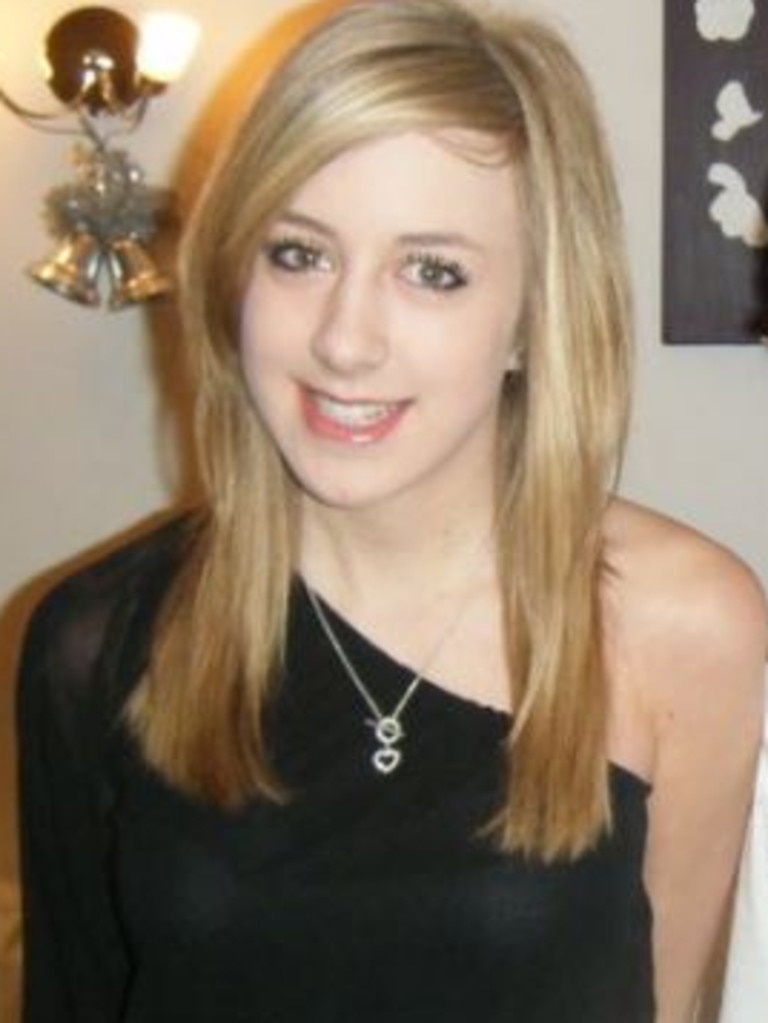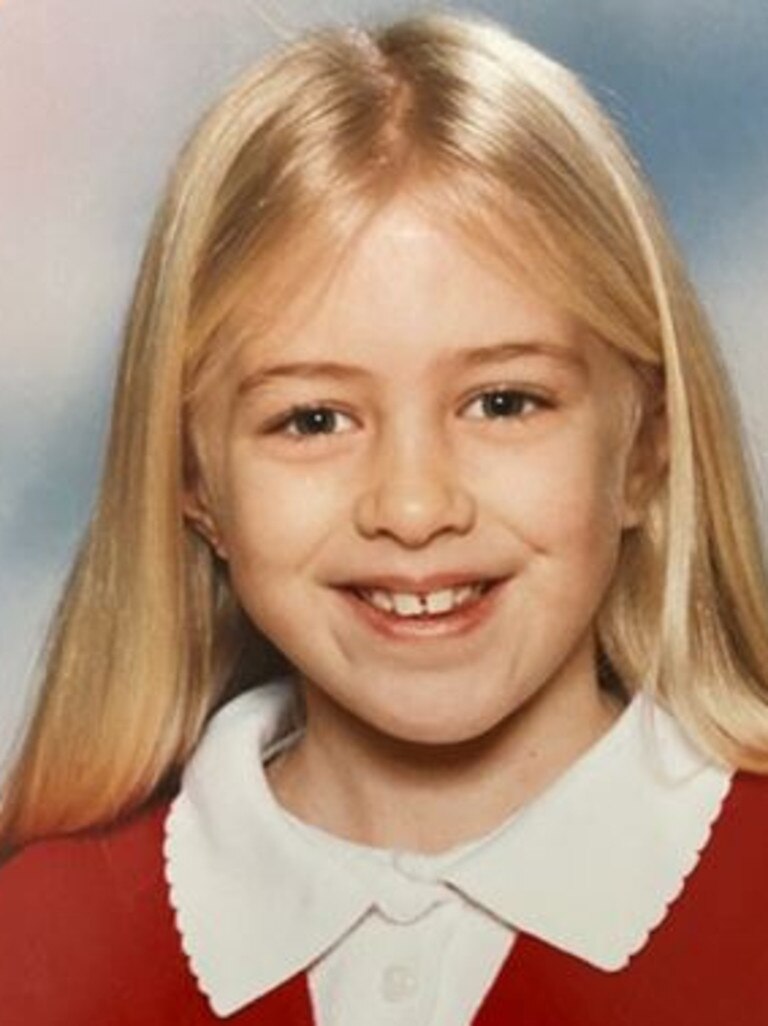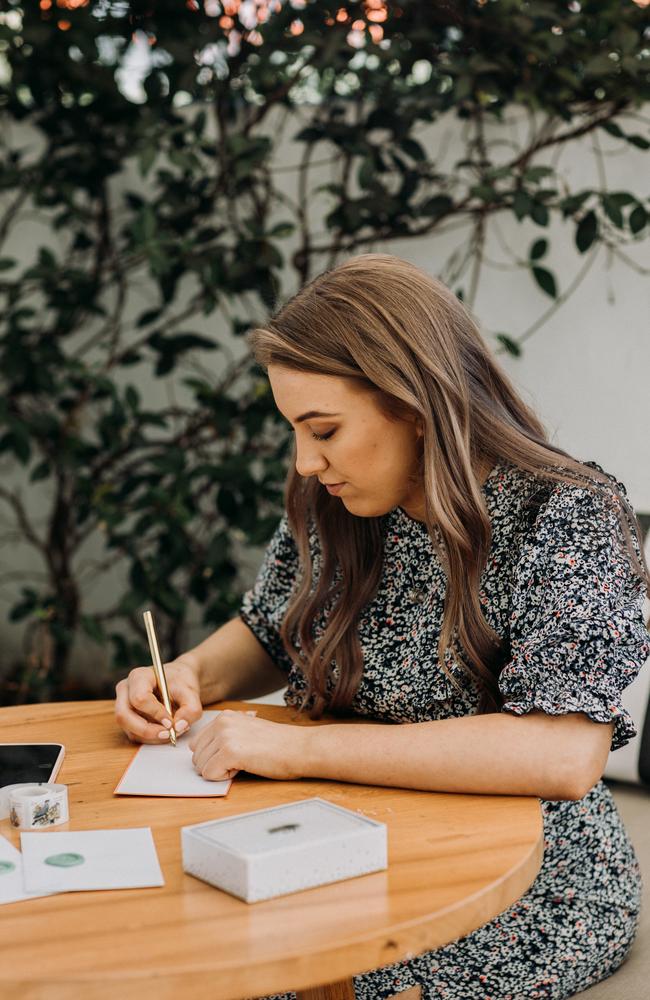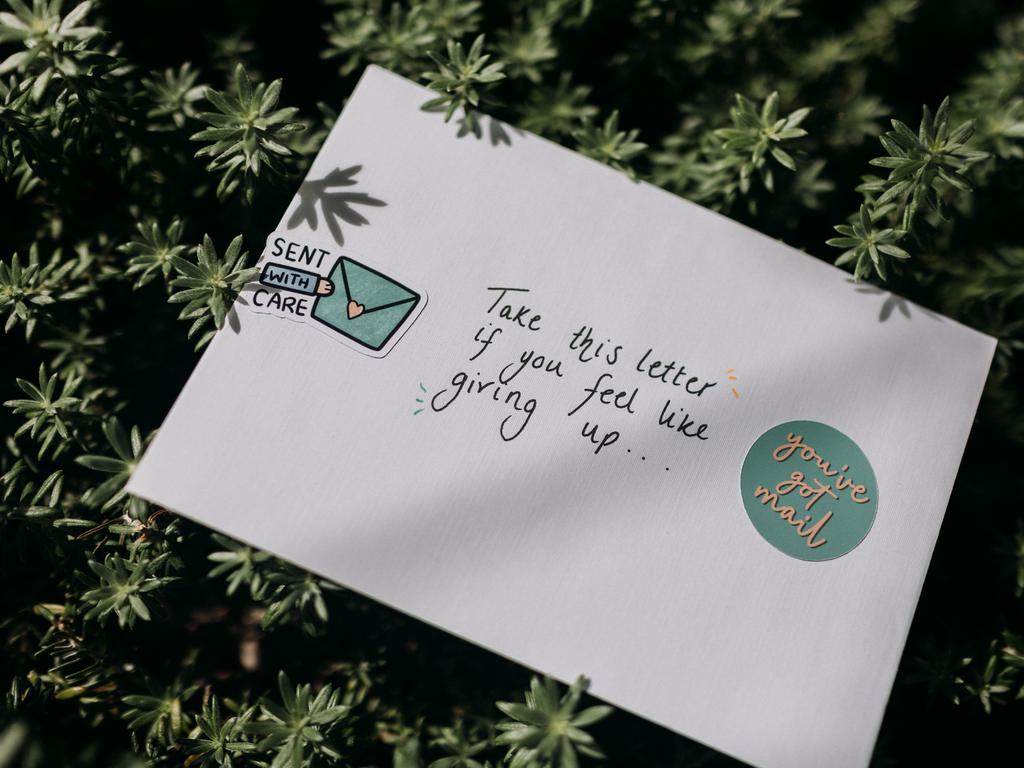Woman, 28, on the reality of having obsessive compulsive disorder
At 15, a Gold Coast teen began to have “disturbing” thoughts that she couldn’t shake. The tiniest thing would set them off.
Abbie Williams was a 15-year-old schoolgirl when she first noticed something wasn’t quite right.
With exams approaching, and her recently getting together with her first boyfriend, suddenly she was struck down with thoughts she just couldn’t shake.
“The key things that I noticed were just really distressing, intrusive thoughts,” Abbie, now 28, told news.com.au.
“One example of what that might look like is if you’re going for a walk, and there’s a big drop down, and a thought pops into your mind of ‘Imagine if I jumped off’.”


And while others may having fleeting thoughts like this, Abbie would become completely overcome because, although she didn’t know it yet, she had obsessive compulsive disorder (OCD).
“I would kind really ruminate and obsess over that intrusive thought that had popped into my mind,” she said.
“The other thing that I did a lot of at that time as well was just seeking reassurance, which is also quite common in OCD, when you do experience intrusive thoughts.”
She said she would constantly seek assurance from her boyfriend at the time that what was happening wasn’t a big deal.
Abbie didn’t have the charactertistics many think of when it comes to OCD, such as external compulsions like needing to wear a certain type of clothing, keep her house ultra-clean or needing to take a certain amount of steps.
Anything could set these thoughts off, for instance if a violent news story popped up on the TV she would then start having “disturbing” thoughts. It would make the teenager question whether or not she was violent or had something wrong with her.

She felt incredibly alone, often spending days sitting in her bedroom in the dark with no television on because she was worried it would set her off.
Abbie was terrified to talk to anyone about what she had been going through her mind, afraid people would think she would be thought of as a bad person or, even worse, be sectioned.
The thoughts continued on as she got older.
One day, the intrusive thoughts had a tight grip on her so she turned to the only place a 17-year-old teenager could think of – the internet.
“I found an online forum where people were talking about similar thoughts, and they were talking about it in the context of OCD,” she said.
“So it was kind of like a weight was lifted, because I realised, ‘oh, okay, I’m not completely losing my mind. This is actually a mental illness. And this sounds like exactly what I’m going through right now as well’.”
She now had a name for what she had but she was still scared to seek the advice of a doctor for what she had been going through.
Instead, she did more reading in an attempt to discover more about what OCD was, how it may manifest and coping tools for when it was at its worst.
Two years after her internet search, Abbie went to a doctor about her anxiety and depression and mentioned her thoughts about having OCD.
“But I think even at that point, I was still quite secretive about the intrusive thoughts and didn’t feel completely comfortable in being up and about them,” she said.
“So it was hard, I guess, still to get that, that proper help and support because of the stigma.”
She tried a few different medications and cognitive behavioural therapy but none were as effective as she hoped.

But, when she moved to Australia from the UK at 22, things became difficult once again and Abbie knew she needed to see someone.
“I was becoming really distressed again, concealing those thoughts and feelings a lot. And I decided to book in an appointment with a GP. And I was really open with him probably more often than I had been in the past with professionals,” she said.
The GP went above and beyond, speaking with a psychiatrist about Abbie’s intrusive thoughts.
He helped her find a medication balance that suited her, and she said while she still has the occasional intrusive thought – like many do – she can now recognise it and let the thought go.
Abbie is now trying to bust the myths about OCD and what many people believe it is, thanks to depictions on television and film that consistently show the mental heath issue as external compulsions such as cleanliness.
“I think it’s frustrating. I mean, there are people out there with OCD who might see it manifest in that way,” she said
“So I do acknowledge that but I think there is such a high percentage of people who’ve got OCD that are probably completely unaware and just don’t even think to explore what OCD is, or even try to get a diagnosis because there’s nowhere near enough information out there around what OCD can look like.
“So I think that’s why it took me so long to figure out what was going on. And it was really actually quite harmful because seeing those depictions in TV and movies, it just kind of prolonged me being able to find out more about the condition, and the other ways that it can show up.

“So I think we need to see more representation of OCD in different forms because that’s going to help educate people and prompt them to seek further information and support as well.”
Now, Abbie is working to make sure that nobody feels alone, like she did while she had no idea what was going on.
She’d been writing letters back to her grandparents in the UK to fill them in on her life in Australia, and the idea prompted her to found Letters of Hope in 2018.
The organisation writes letters to those who may be struggling with mental health issues, sending more than 1700 letters and having more than 140 volunteers since it was founded.
Abbie also wants people not to use the phrase OCD flippantly, like describing why they want things done a certain way.
“I think just encouraging people to think about those throwaway comments and the impact that it might have on the people around them is really important,” she said.






